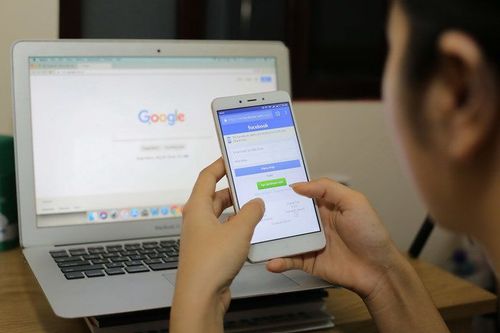This is an automatically translated article.
Lesbians - male (Gay), bisexual (Bisexual) or transgender (Transgender) still have many ways to become parents. Depending on your personal circumstances, age, budget, and other factors, you may want to consider a transgender pregnancy or the suggestions below.
1. LGBT parenting journey: Questions to ask
Before you begin your journey as a parent, you need to consider a few important questions:
Is it important for you to have children of the same bloodline? How much is your budget? How many children do you want to have? When is the ideal time to have children? This depends on many factors, from physical (e.g. the chance of transgender people getting pregnant decreases with age) to personal (e.g. you want to have children at the same time as your friends or relatives). If you are married, do you both agree on when and how to have children? If still single, do you have relatives or friends to help you with pregnancy and parenting as a transgender? Are you ready to become a parent? This can take more time and money than expected, as well as unexpected hassles. People of the LGBT community have many options to raise a family. Once you're sure you want to proceed, you can begin to explore and decide which path to parenting is best for you. Here are the basic options suitable for different situations:

mang thai ở người chuyển giới
2. Choice: Artificial insemination
Reason for selection: Lesbian or transgender person wants to have a child.
You can receive sperm from anonymous or identified donors. In recent years, sperm banks have become more familiar to lesbian and bisexual people, transgender people who are pregnant and want to be a single mother or start a full family as a couple. normal husband.
Before trying to conceive in a transgender person, you should have a medical examination to determine the possibility of conception. If you're in a lesbian relationship, you need to decide who's carrying the baby, or if you both want to try.
2.1. Anonymous sperm donor You need to find a reputable sperm bank. Here will provide you with some information about the sperm donor, such as:
Height Weight Hair and eye color Ethnicity Health History Occupation. All donors have undergone a detailed medical examination, including HIV and sexually transmitted diseases.
You should find out if your chosen sperm bank actively supports the LGBT community. There are even some places that specialize only in lesbian couples and single women.
You should also ask if your bank has a donor disclosure program. Typically, this organization will release donor contact information when your child turns 18.

Thụ tinh nhân tạo có thể giúp người chuyển giới trở thành cha mẹ
2.2. Identified sperm donors Some lesbian couples, single women, and pregnant transgender people choose to receive sperm from an acquaintance. When using this method, you do not need to go to the sperm bank and save a lot of money. But you can also have a sperm bank medically screen and store your chosen donor sperm.
However, it should be noted that the selection of an identifier donor often comes with complex legal and personal implications. You must decide and agree on the future relationship (if any) between your child and the donor. Would you like this person to play the role of the child's parent or relative? Is there a allowed or no relationship with your child?
2.3. Insemination Methods Insemination options and practices will depend on many factors.
If using a sperm bank, you can:
Vaginal Insemination (VI): Sperm are deposited in the vagina near the cervix by many simple methods. You can do it at home or in a medical facility, choosing "washed" or "unwashed" sperm. Sperm washing is more expensive but can increase your chances of a successful pregnancy. Intrauterine insemination (IUI): Sperm are inserted through the cervix and injected into the uterus by a doctor. You must be forced to use "washed" sperm when doing this technique. Recommended video:
How to calculate gestational age for IVF
If you don't use a sperm bank, there are different ways to collect and use sperm from someone you already know. For example, you can have vaginal insemination (VI) by injecting fresh deposited sperm into the vagina, near the cervix.
2.4. Price The cost of an insemination varies based on many factors, including:
The health and age of the prospective parents Other methods of support needed Where it is performed. According to data from the California Sperm Bank in December 2016, a 1-cc bottle of frozen sperm for home use costs $640 (about 14.8 million VND). Meanwhile, the price for each vial of "washed" sperm (required for IUI) is $720 (about 16.6 million VND), plus the cost of the doctor performing the technique.
2.5. Legal Issues There is usually no legal barrier to using anonymous donor sperm through a bank. If choosing a known donor, with or without a sperm bank, then proceed with caution.
The law is different in each place. Most experts recommend signing a sperm donation agreement before conception, to protect yourself and the donor. In many countries, if artificial insemination is performed in a medical facility, the donor is not considered the legal father of the child.
If you have asked someone you know to donate sperm, both parties, together with an attorney, should work out an agreement that includes details such as:
The donor can be contacted What level are you? Does the donor have paternity rights? Does the donor have a child support obligation or not? You can find sample engagements on the websites of attorneys specializing in reproductive law and on LGBT parenting websites.

Thường không có rào cản pháp lý khi bạn sử dụng tinh trùng của người hiến ẩn danh thông qua ngân hàng
3. Option: Surrogate
Reason for choice: You can't or don't want to have a baby, but still want to have a baby of the same bloodline. The surrogate agrees to carry the baby for you, either through artificial insemination (using a surrogate's eggs) or using eggs that are fertilized externally, and then implanted in the surrogate's uterus.
3.1. How it works The prospective parents and surrogate will sign a legal agreement detailing issues such as:
Parental rights and obligations Child custody Payment of medical bills Controlling medical decisions Child's birthplace Medical history of surrogate surrogacy Surrogate costs, including basic and personal fees, such as maternity clothing. Depending on the situation, individual needs and plans, eggs or sperm can be obtained from either you, a relative, a friend or a donor. Some gay couples use half of the eggs to fertilize one partner's sperm, while the other half combine with the other's sperm. This splits the chances of becoming the biological father of the child equally for both.
You can be involved in your baby's life from the very beginning, like accompanying a surrogate to regular checkups, listening to the baby's heartbeat and witnessing each stage of pregnancy.
3.2. Price According to data from abroad, you need to be prepared to spend 100,000 USD, equivalent to 2.3 billion VND, for a surrogacy. This amount includes costs for:
Agents Attorneys Surrogacy wages Medical care Services Artificial insemination Childbirth

Mang thai hộ là cách giúp người chuyển giới có thể trở thành cha mẹ
3.3. Legal issues Laws vary from country to country, and even from state to state in the United States. For example, in New York, it is illegal to hire a surrogate. In California, however, the process is legal and there are agencies dedicated to matching couples with potential surrogates.
4. Choice: Adoption
Reason for choice: You don't want (or can't) have a baby, and it doesn't matter if you have a child of the same bloodline.
Adoption is a popular choice for parents of LGBT people. This can be a long process, and there are many ways to go about it, including:
Adoption from public or private organizations at home and abroad Financial support for the child's upbringing for a temporary period time, as a foster parent You must decide:
Adopt an infant or an older child Adopt a child of the same or different race, are there any special requirements How long can you wait Adopt a child national or international (If you choose to adopt a child domestically, you can contact the family of the child's biological mother) What is your budget. Laws regarding the adoption of children by infertile couples and LGBT parents vary from state to state and country to country. Therefore, it is advisable to consult an attorney before deciding to adopt, preferably one with prior experience working with the LGBT community.
4.1. Orphanage Centers These are private and public agencies that allow families who are unable to have children to adopt a child, including orphans, abandoned or abused children.

Nhận con nuôi là chọn lựa phổ biến để làm cha mẹ của những người thuộc cộng đồng LGBT
4.2. Temporary foster care as foster parent You can also raise a child whose current parents are unable to care for them, possibly due to difficult economic circumstances, neglect or incarceration.
Adoption like this will cost less, most children will receive multiple sources of support during adulthood. This meets the limited financial resources faced by families, while helping to raise the child to grow up well.
Adopting an adopted child can be a long process. Expectant parents should plan to spend 9 - 18 months learning how to care for and raise a child.
4.3. Domestic private adoption The prospective adoptive parent or broker will deal directly with the biological parents, working with an adoption attorney. An attorney will guide prospective adoptive parents through the paperwork and filing of the case with the court.
You can choose:
One is that the new child and family will not contact the biological parents, and the records are sealed and kept private. Second, the adoptive and biological parents can be contacted before the baby is born. At the same time, it is also possible to maintain contact to a certain extent in the future. 4.4. International Adoption This used to be a viable option for LGBT people about a decade ago, but it's becoming increasingly difficult for Americans. If you and your spouse decide to adopt an international child, only one of you can be the adoptive parent. The second parent can then adopt the child once the child has been sponsored to live in the United States.
4.5. Legal and Other Matters Each state and country has its own laws about adoption. It's a good idea to find a trusted local attorney to guide you through the adoption process, which will help you avoid a lot of complicated legal issues.
The journey of parenthood when you are gay, bisexual, as well as a transgender pregnancy can be more difficult, including detailed planning, clear legal documents and stable finances. But starting a family and raising children is really a great experience, try starting if you think you are ready.
Please dial HOTLINE for more information or register for an appointment HERE. Download MyVinmec app to make appointments faster and to manage your bookings easily.
Reference source: babycenter.com
SEE MORE:
Learn about artificial insemination for transgender people What you need to know about lesbian, gay, bisexual and transgender people Health issues for gay people men and men having same-sex sex













